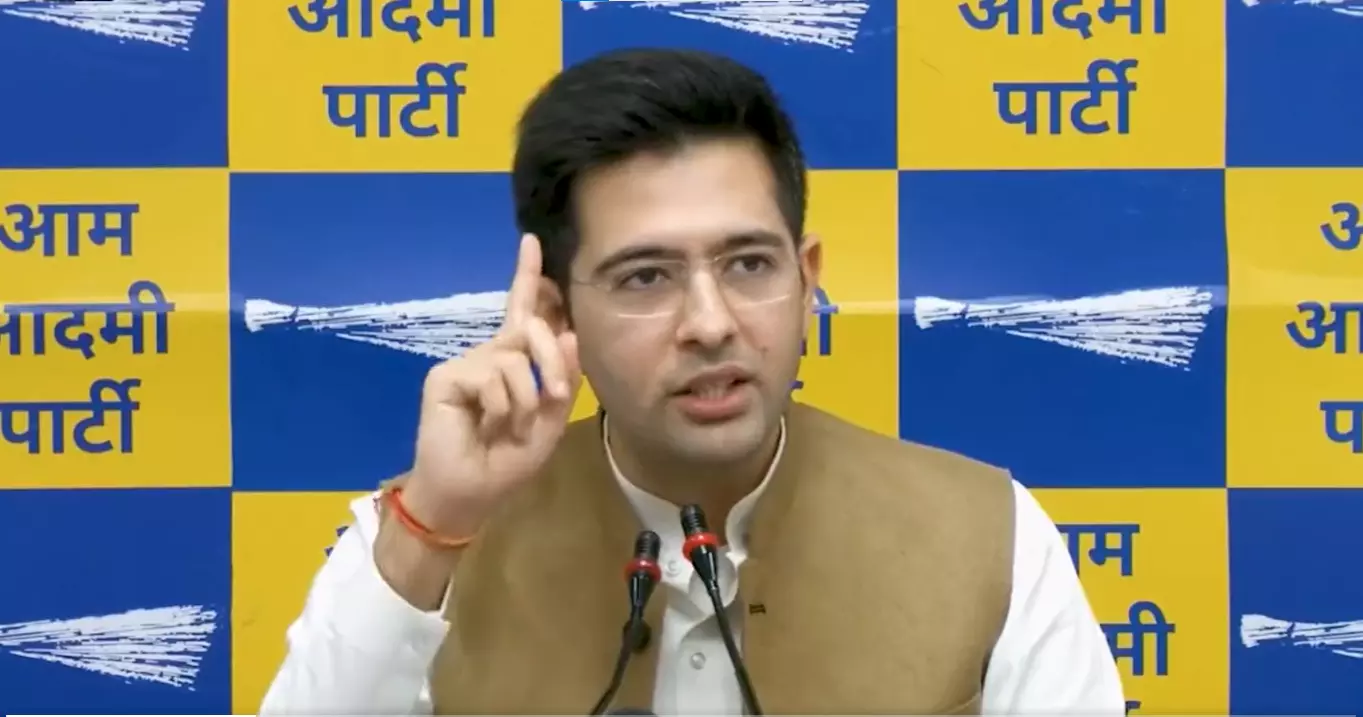
What's vitrectomy, the surgery that AAP MP Raghav Chadha underwent in London?
This emergency medical procedure is performed to prevent retinal detachment, which is characterised by the development of small holes in the retina

Aam Aadmi Party’s Rajya Sabha MP Raghav Chadha has recently undergone vitrectomy, an emergency eye surgery, in London to prevent retinal detachment in his eye, stated a PTI report citing party sources.
“Raghav Chadha has undergone major eye surgery in the UK. It is said that his condition was serious and there was a possibility of blindness. As soon as he gets better, he will come back to India and join us in the election campaigning,” Delhi Minister and AAP leader Saurabh Bharadwaj told the news agency.
Though he has been away for treatment, the AAP MP has responded on social media to developments within the party. He also reacted to allegations by the party that the Tihar jail authorities are denying Arvind Kejriwal insulin and other medicines for diabetes. “Arvind Kejriwal has been a diabetic patient for many years. Kejriwal is on 54 units of insulin every day. It is being said that the administration in the jail is not giving him insulin,” he said in a post on social media platform X on April 18.
What is retinal detachment?
Retinal detachment is a serious eye condition where the retina, the light-sensitive tissue lining the back of the eye, pulls away from its normal position. This separation can disrupt the blood supply and nutrient flow to the retina, leading to vision loss if not promptly treated.
Among its symptoms are sudden onset of floaters (spots or specks in the field of vision), flashes of light, and a curtain-like shadow or veil descending over the visual field. Prompt medical attention is essential to prevent permanent vision loss.
What is vitrectomy?
As per John Hopkins Medicine, a vitrectomy is performed to take out the gel-like substance -- vitreous gel -- formed inside the eye. This allows doctors to reach the back of the eye, where the retina is.
This emergency medical procedure is performed to prevent retinal detachment, which is characterised by the development of small holes in the retina. These small holes can progress rapidly and cause irreparable and irreversible damage if prompt medical intervention is not sought, causing severe vision impairment or even blindness.
During the surgery, the removed gel is replaced with a saline solution or sometimes a gas bubble. The retina, located at the back of the eye, captures light and transmits visual signals to the brain. The clear vitreous gel allows light to pass through to reach the retina. However, factors like blood, debris, or scar tissue can block this light, resulting in vision impairment. In cases of a detached retina, surgeons may perform a vitrectomy to improve access to the retina and reduce tension on it.
What causes the condition where one needs vitrectomy?
An individual may need vitrectomy if one has certain eye problems like diabetic retinopathy, retinal detachment, vitreous haemorrhage, eye infections, severe eye injuries, or issues after cataract surgery. These conditions can lead to vision loss and, if left untreated, even blindness.
Vitrectomy can help restore lost vision in some cases, especially in emergencies like eye injuries. However, it can also be planned for certain conditions.
What are the risks involved in this surgery?
Vitrectomy is generally safe, but like any surgery, there are potential risks. The likelihood of experiencing complications can vary based on factors like age and overall health.
Some risks associated with vitrectomy include infection, excessive bleeding, elevated pressure within the eye, development of a new retinal detachment due to the surgery, damage to the lens of the eye, increased likelihood of cataract formation, difficulties with eye movement post-surgery, and changes in refractive error (the need for glasses or contacts).
There is also a chance that the surgery may not fully resolve the original problem, which might need additional surgery.

